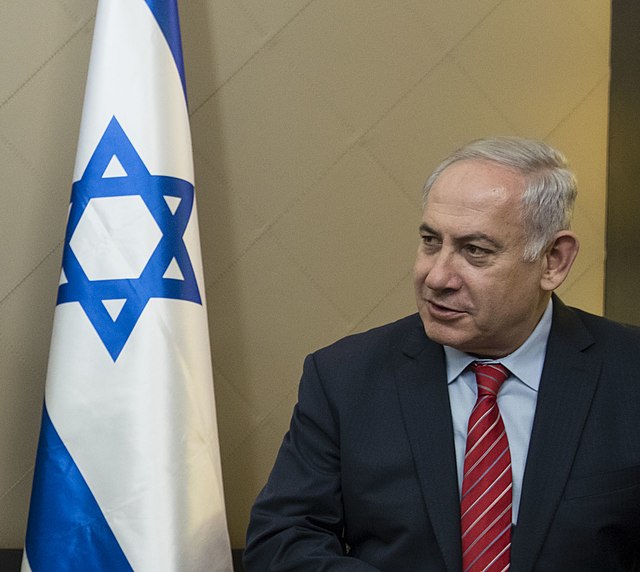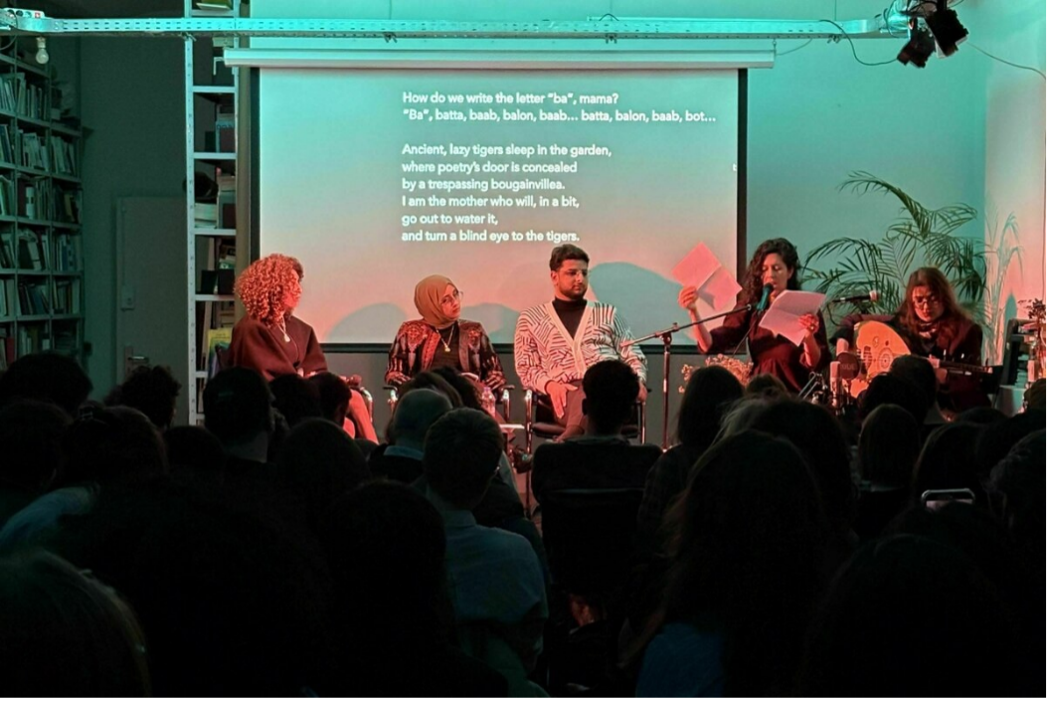Netanyahu embodies Israel’s Oedipus, relentlessly pursuing total victory in the Gaza war. However, his hubris will inevitably lead to regret when he realizes the catastrophic consequences of his actions. His reluctance to cease the Gaza conflict is not solely driven by military objectives but also by political motives: avoiding elections, thwarting a state inquiry into the October events, and postponing his court appearance until March 2025. Netanyahu’s determination to prolong the war illustrates his desire to evade legal accountability, demonstrating that his personal concerns outweigh the nation’s welfare. Four years ago, when the Supreme Court was required to address petitions against Netanyahu’s continued tenure, his supporters claimed that the dual roles would not hinder him and that a Chinese wall separates the defendant from the Prime Minister. It turns out that it is difficult to run a legal system while also managing a country in such a deep war crisis. Netanyahu’s hubris will drag Israel further down, but ironically, his refusal to recognize a Palestinian state might lead to the opposite result.
At the end of June, I went to Israel to visit my family. Israeli fighter planes did not stop circling over our home in Haifa, and the fear was palpable at every moment. The newspapers reported that the IDF spokesperson stated the military would remain in Gaza for at least another six months and control the border with Egypt. There is no sign of a hostage deal that might calm the entire region, which is being destroyed. To make matters worse, there are no indications that Benny Gantz, who left the Israeli government to sit with the opposition, will discuss a proper way out of the turmoil—a peace process with the Palestinians. In post-October 7th Israel, the peace process, the end of the occupation, and the establishment of a Palestinian state are seen not as solutions to the escalating regional crisis but as rewards for Palestinian aggression. Israel stands at a crossroads: one path leads to a hostage deal and a permanent ceasefire, while the other leads to the deepening of fighting, potentially against Hezbollah in Lebanon and possibly Iran in the future.
As we entered the city of Haifa, the GPS signal was lost. The entire city is functioning without location services due to the ongoing military conflict with Hezbollah. The fear of an impending war with Hezbollah from the north is palpable among my family members. How can you plan life this way? The IDF spokesperson announced a temporary truce in Gaza operations, warning that if Hezbollah does not cease its activities, war will soon commence. Western countries, including the USA, Britain, and France, have already advised their citizens to leave Lebanon. According to the American Bloomberg website, former head of the National Security Council, Eyal Hulata, stated that a war with Hezbollah could result in 15,000 Israeli casualties. On July 3, 2024, the deputy leader of Hezbollah said that the only sure path to a ceasefire on the Lebanon-Israel border is a full ceasefire in Gaza.
I went to the sea with a friend who confided his fears about Israel’s future. The climate was oppressively hot, and the air was heavy with moisture. The jellyfish had already migrated south, possibly reaching Egypt by now. As I listened to my friend, I could see he was traumatized by the Gaza war, and I also found myself contemplating the future of the entire region.
This tragedy affects all the peoples of the region, but especially the Palestinians in Gaza, who live in a small strip of land with no infrastructure, teetering on the brink of famine and epidemics. There is no safe place in Gaza, most of which has been destroyed by the IDF, and tens of thousands of innocents have been injured or killed. The war also affects the residents of the occupied territories, who suffer under the violent actions of settlers’ militias, actions that are often supported by the IDF and police forces, under the influence of ministers Ben Gvir and Smotrich. The army invades the occupied territories weekly, often resulting in the deaths of innocent people. And the violent settlers attacking the Palestinians villages and there is no one who could stop them.
The war also harms Israel, which is increasingly isolated and boycotted internationally. Hundreds of thousands of residents have fled settlements in the south and north, bearing the enormous cost of the ongoing conflict. The government’s refusal to address the issue of hostages is tearing the country apart from within. The economic damage from the Gaza war is also impacting neighboring countries—Egypt, Lebanon, and Jordan. According to a report in the New York Times, based on estimates from the United Nations Development Agency, in just three months, the war has wiped out $10.3 billion, which is 2.3% of the combined GDP of these three countries. Egypt is also grappling with the loss of revenue from Suez Canal traffic and tourism, finding itself in a dire situation after eight months. Lebanon, already one of the poorest countries in the world, faces the displacement of hundreds of thousands of residents from southern Lebanon due to war fears. Even before the war, Lebanon was on the brink of bankruptcy, and now the situation has worsened with the loss of tourism income and the looming threat of conflict.
During my visit, I noticed that the word “peace” is absent from the media, and there is no real conversation about the future of Israeli-Palestinian relations. One of Netanyahu’s hubristic traits is his reluctance to discuss the future in Gaza, recognizing the existence of a Palestinian people who demand peace and justice. Therefore, it is crucial to consider three possible solutions for the day after a hostage deal and ceasefire in Gaza:
1. Complete annexation of Gaza and the establishment of Israeli Jewish settlements on Gaza land
This option is favored by far-right extremist leaders Ben Gvir and Smotrich. Channel 14 host Yanon Magal stated in an interview with the Prime Minister: “A large part of the public thinks that territory should be taken, and the Gaza Strip should be settled.” There are even more radical voices, such as the “Awaken North” movement, contemplating re-occupation and settlement in the south of Lebanon.
2. The Gaza Strip controlled by the Israeli army
This scenario would likely lead to civil resistance and the strengthening of Hamas.
3. A full peace process with the Palestinians, arranged under the umbrella of international powers and mediated by moderate Islamic countries such as Egypt, Jordan, Saudi Arabia, and Qatar.
This would include the deportation of Hamas leaders, the rehabilitation of Gaza, and the transfer of control to the Palestinian Authority within Gaza.
In an interview with Channel 14, Netanyahu rejected the first option, calling the annexation of Gaza an unrealistic idea. The second option, military control of Gaza, is the path we are currently heading down under Netanyahu’s leadership. Why isn’t Netanyahu’s coalition or Gantz’s opposition discussing the third option? Because they, too are infected with hubris. After decades of Netanyahu’s control over state mechanisms, the opposition has accepted the basic assumption of an overwhelming fear of a Palestinian state, even if it is demilitarized and coexists alongside Israel.
Hubris is a fitting term to describe Netanyahu’s lack of leadership
Why do I consider “hubris” an apt term to describe Netanyahu’s lack of leadership? The term originates from ancient Greek, denoting excessive pride or self-confidence. In classical literature, hubris often characterizes individuals who, by overestimating their abilities or importance, provoke the gods or exceed the limits of what is feasible, ultimately leading to their downfall. Netanyahu disregards the imperative for peace, healing, and reconciliation with Palestinians, opting instead for a militaristic approach to navigate his ongoing corruption trials.
Israeli journalist Amir Oren of Haaretz writes, “Netanyahu is simultaneously managing four fronts: legal, military, political, and diplomatic (and possibly family and health). In each, his aim is to buy time.” Netanyahu’s hubris mirrors a prevalent mindset in Israeli society, one historically dismissive of Palestinian aspirations for equality, justice, and peace, including the establishment of their own demilitarized state. This hubris deepens the binary divide within Israeli identity and fosters a mentality of “we are the eternal people” versus “the Amalek seed,” dehumanizing Palestinians by attributing collective blame for Hamas’s actions.
Memories of past atrocities, such as the October 7 massacre and the refusal to return the hostages obstruct prospects for reconciliation. Nevertheless, courageous leaders can defy public opinion, reminiscent of when Israeli Prime Minister Yitzhak Rabin pursued the Oslo Accords despite initially advocating for harsh measures against Palestinian protesters during the first intifada. This resulted in the enduring peace agreement with Jordan, where Jordan even defended Israel against Iranian missile attacks.
A survey by Israeli Channel 11 (June 2, 2024) reveals that 40% of the public supports President Biden’s proposed framework for a hostage deal and cessation of the Gaza conflict, with an equal proportion believing it will conclude hostilities. In contrast, 27% oppose the framework, and 34% foresee renewed conflict post-deal. Despite Israeli public support for Biden’s proposal, Netanyahu persists in disregarding these voices. His reluctance stems from facing an internal inquiry commission regarding the October 7 massacre upon cessation of hostilities, potential coalition losses in upcoming elections, loss of immunity from corruption charges, and the prospect of facing ICC in Hague.
Social shifts, particularly among younger Woke generations in America and Europe, signal a departure from the entrenched narrative of continued Israeli occupation of Palestinian territories. Increasing global dissatisfaction with colonial norms, coupled with heightened awareness of Global South struggles, heralds an unprecedented shift. While acknowledging the need for a self-reflection process within the Palestinian movement following the October 7 massacre, Israeli society must also reflect on its treatment of Palestinians through administrative detentions, blockades, and other colonial measures.
In Israel, dissenters are often dismissed as radicals or labeled anti-Semitic, failing to consider the millions of Palestinians living without basic rights alongside them. Like characters in a Greek tragedy awaiting revelation, Israel must awaken to recognize how its occupation fuels conflicts like the Gaza war, Hezbollah clashes, and hostilities with groups such as the Houthis.
Dialectically, as long as Israeli leaders—whether from the right or left—persist in hubristic attitudes toward Palestinians, Israel faces increased global isolation and boycotts, akin to South Africa’s historical experience. Leadership must defy electoral promises and initiate a political process for peaceful coexistence and justice alongside Palestinians.
It may culminate tragically, with countless lives lost on both sides and irretrievable time wasted. As I journey back to Germany, anti-Netanyahu graffiti and flags line the route, and airport images of hostages prompt questions about their return. Paradoxically, Netanyahu and his camp have already labeled the voices demanding their return as “Leftist,” dismissing it as if it weren’t a genuine human rights demand. Yet, a singular solution remains: two nations sharing their homeland peacefully, free from violence, perhaps a reality to emerge long after my time.
This article was originally published in German in the Berliner Zeitung. Reproduced with permission.




